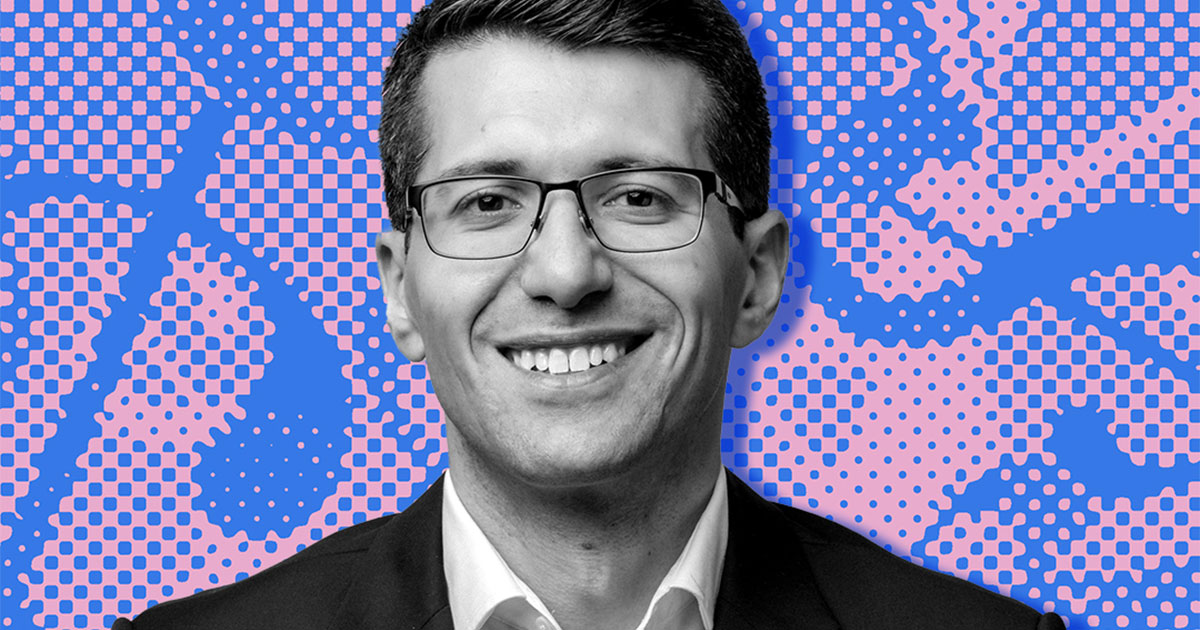Investment
Global investment money is flooding into Africa’s fintechs – Aljazeera.com

Ricky Rapa Thomson was a security guard and then a motorbike taxi driver before he became an entrepreneur. SafeBoda, the startup he co-founded, promises safe and reliable transport on Uganda’s deadly streets. It also offers fintech solutions for its drivers and customers and hopes to become Africa’s largest ride-hailing service.
It’s the kind of fairy-tale story that tech investors usually love. Yet it’s also the sort of pothole-filled journey that overseas capital has traditionally avoided in Africa, preferring instead to focus on extractive industries like mining or on infrastructure projects.
So Thomson was anxious when SafeBoda sought Series B investments in 2019. But the startup drew funding from the investment arms of German insurance major Allianz and Indonesian super app Gojek, neither of which had ever put money in African tech before.
“It was humbling,” Thomson told Al Jazeera, recalling his emotions at the time. “It’s an amazing validation.”
Two years later, Thomson’s experience resonates with hundreds of African founders, as the continent emerges as ground zero for a stunning surge in fintech funding. Global investors, often from countries that have traditionally not been major players in Africa, are rushing to back promising startups. From giant corporations to venture capital (VC) firms of myriad sizes, no one wants to be left behind.
It’s an amazing validation
In the third quarter of this year alone, African fintech firms raised $906m, according to Digest Africa, a database of early-stage investments on the continent. That represented more than 60 percent of all venture money that flowed into Africa last quarter, and more than all other sectors combined in the first half of 2021.
This year’s trend builds on a separate analysis by BFA Global’s Catalyst Fund, which showed funding for African fintechs grew exponentially, from a mere $385m in 2018 to $1.35bn last year.
Unicorns multiply
Three years ago, the continent had one privately-owned startup worth over $1bn – Nigerian e-commerce company Jumia. Today, at least seven African startups have joined the “unicorn” club. Five of those are fintech firms, three of which — Flutterwave, OPay and Wave — became unicorns just this year.
Too many numbers? This wave is just getting started, according to Ryosuke Yamawaki, whose Kepple Africa Ventures entered the continent in 2018.
“I think it’s going to explode,” Yamawaki told Al Jazeera. “Now we see new investors from outside Africa every day.”
In October, Google announced a $50m fund to support African startups. The same month, New York-based Tiger Global invested $15m in Nigeria’s Mono, and $3m in Zambia’s Union54. In March, Tiger Global led a $170m funding round for Nigeria’s Flutterwave, which helped that company become a unicorn.
But it isn’t just the West that has its eyes on African fintech. In August, Nigeria-based mobile money service OPay became the most-valued African startup at $2bn after a mammoth $400m funding round led by Japan’s SoftBank and backed by Chinese investors such as Sequoia Capital.
But while these behemoth funds often grab the spotlight, smaller investors from a diverse set of countries are the ones who’ve laid the foundation for African fintech’s moment in the sun.
Now we see new investors from outside Africa every day.
Unlike Tiger Global and SoftBank, which started investing in African startups only this year, Japanese venture capital companies Kepple, Samurai Incubate Africa and Asia Africa Investment & Consulting have been rapidly building their portfolios over the past two years.
Kepple has now invested around $15m across 96 companies, Yamawaki said.
In April, Australia’s TEN13 invested an undisclosed amount in Kenya-based ImaliPay. And the investment in SafeBoda from Indonesia’s Gojek underscores how funds from emerging markets are joining their peers from developed economies in betting on Africa. “The world realises that the best way — the only way really — to find solutions to Africa’s challenges is by investing in local innovators capable of designing fixes that actually work,” Thomson said.
The race is on
To be sure, fintech is hot globally — not just in Africa. But the continent has unique features and challenges that make the sector an ideal fit.
Traditionally, the high cost of doing business in Africa has served as a deterrent for many foreign investors, said Aubrey Hruby, who advises Fortune 500 firms and other major companies on investments in the continent. Poor physical infrastructure complicates business activities.
“Fintech does away with those infrastructure challenges,” she said.
African talent in the sector has also matured now, with many founders on their second or third startups. “Investors know they’re dealing with people with a proven track record who’ve learned along the way,” Hruby told Al Jazeera.
Then there’s the market itself: 40 percent of sub-Saharan Africa’s people are under the age of 15, making them potential future customers at a time when smartphone penetration, still under 50 percent, is rising sharply.
Investors know they’re dealing with people with a proven track record.
“It’s a huge opportunity,” says Ricardo Schäfer, a partner at Target Global, a London-based venture capital fund. “Like in a gold rush, you want to invest in picks and shovels, we want to focus on the infrastructure of digital money — and that’s fintech.”
Though the United States, China and others are all vying for influence in Africa, the race to invest in fintech is unlikely to be impacted by geopolitics, according to Hruby and Yamawaki. VCs, Yamawaki said, just don’t think that way. But a different competition, among private sector investors from around the world, appears inevitable. “There’s a scramble to get in,” said Yamawaki. “The winners will be those who came to the market earlier.”
Yet getting in early brings its own risks and anxieties. After Target Global led a $10m investment round for Nigerian digital bank Kuda last year, Schäfer said his firm’s “biggest concern” was whether smart capital would “follow us.” It did: In early August, Kuda was valued at $500m after a fresh round of funding. “Our concern faded away very quickly,” he told Al Jazeera.
Now, the entry of some of the planet’s biggest funds like SoftBank and Tiger Global is likely to increase the confidence of smaller VC firms looking to make early-stage investments, said Yamawaki. And as the startups grow bigger, “their talent will leave and start their own businesses”, further spreading the lessons they’ve learned from their success, said Hruby.
True, the political instability and regulatory uncertainty that have long spooked investors in Africa remain realities in several nations even today. But SafeBoda’s Thomson is convinced that the flood of investments into African fintech reveals a pathway to a better future. “When global investors back local innovators and local tech, you build a better world,” he said.
Investment
Deutsche Bank's Investment Bankers Step Up as Rate Boost Fades – Yahoo Canada Finance
(Bloomberg) — Deutsche Bank AG relied on its traders and investment bankers to make up for a slowdown in income from lending, as Chief Executive Officer Christian Sewing seeks to deliver on an ambitious revenue goal.
Most Read from Bloomberg
Fixed income trading rose 7% in the first quarter, more than analysts had expected and better than most of the biggest US investment banks. Income from advising on deals and stock and bond sales jumped 54%.
ADVERTISEMENT
Revenue for the group rose about 1% as the prospect of falling interest rates hurt the corporate bank and the private bank that houses the retail business.
Sewing has vowed to improve profitability and lift revenue to €30 billion this year, a goal some analysts view with skepticism as the end of the rapid rate increases weighs on revenue from lending. In the role for six years, the CEO is cutting thousands of jobs in the back office to curb costs while building out the advisory business with last year’s purchase of Numis Corp. to boost fee income.
“We are very pleased” with the investment bank, Chief Financial Officer James von Moltke said in an interview with Bloomberg TV. The trends of the first quarter “have continued into April,” he said, including “a slower macro environment” that’s being offset by “momentum in credit” and emerging markets.
While traders and investment bankers did well, revenue at the corporate bank declined 5% on lower net interest income. Private bank revenue fell about 2%. Both units benefited when central banks raised interest rates over the past two years, allowing them to charge more for loans while still paying relatively little for deposits.
With inflation slowing and interest rates set to fall again, that effect is reversing, though markets have scaled back expectations for how quickly and how deep central banks are likely to cut. That’s lifted shares of Europe’s lenders recently, with Deutsche Bank gaining 25% this year.
“Deutsche Bank reported a reasonable set of results,” analysts Thomas Hallett and Andrew Stimpson at KBW wrote in a note. “The investment bank performed well while the corporate bank and asset management underperformed.”
–With assistance from Macarena Muñoz and Oliver Crook.
(Updates with CFO comments in fifth paragraph.)
Most Read from Bloomberg Businessweek
©2024 Bloomberg L.P.
Investment
How Can I Invest in Eco-friendly Companies? – CB – CanadianBusiness.com


Welcome to CB’s personal-finance advice column, Make It Make Sense, where each month experts answer reader questions on complex investment and personal-finance topics and break them down in terms we can all understand. This month, Damir Alnsour, a lead advisor and portfolio manager at money-management platform Wealthsimple, tackles eco-friendly investments. Have a question about your finances? Send it to [email protected].
Q: It’s Earth Month! And… there’s a climate crisis. How can I invest in companies and portfolios funding causes I believe in?
Earth Day may have been introduced in 1970, but today it’s more relevant than ever: In a 2023 survey, 72 per cent of Canadians said they were worried about climate change. Along with carpooling, ditching single-use plastics and composting, you can celebrate Earth Month this year by greening your investment portfolio.
Green investing, or buying shares in projects, companies, or funds that are committed to environmental sustainability, is an excellent way to support projects and businesses that reflect your passions and lifestyle choices. It’s growing in favour among Canadian investors, but there are some considerations investors should be mindful of. Let’s review some green investing options and what to look out for.
Green Bonds
Green bonds are a fixed-income instrument where the proceeds are put toward climate-related purposes. In 2022, the Canadian government launched its first Green Bond Framework, which saw strong demand from domestic and global investors. This resulted in a record $11 billion green bonds being sold. One warning: Because it’s a smaller market, green bonds tend to be less liquid than many other investments.
It’s also important to note that a “green” designation can mean a lot of different things. And they’re not always all that environmentally-guided. Some companies use broad, vague terms to explain how the funds will be used, and they end up using the money they raised with the bond sale to pay for other corporate needs that aren’t necessarily eco-friendly. There’s also the practice of “greenwashing,” labelling investments as “green” for marketing campaigns without actually doing the hard work required to improve their environmental footprint.
To make things more challenging, funds and asset managers themselves can partake in greenwashing. Many funds that purport to be socially responsible still hold oil and gas stocks, just fewer of them than other funds. Or they own shares of the “least problematic” of the oil and gas companies, thereby touting emission reductions without clearly disclosing the extent of those improvements. As with any type of investing, it’s important to do your research and understand exactly what you’re investing in.
Socially Responsible Investing (SRI) and Impact Investing
SRI and impact investing portfolios hold a mix of stocks and bonds that are intended to put your money towards projects and companies that work to advance progressive social outcomes or address a social issue—i.e., investing in companies that don’t wreak havoc on society. They can include companies promoting sustainable growth, diverse workforces and equitable hiring practices.
The main difference between the two approaches is that SRI uses a measurable criteria to qualify or disqualify companies as socially responsible, while impact investing typically aims to help an enterprise produce some social or environmental benefit.
Related: Climate Change Is Influencing How Young People Invest Their Money
Some financial institutions use the two approaches to build well-diversified, low-cost, socially responsible portfolios that align with most clients’ environmental and societal preferences. That said, not all portfolios are constructed with the same care. As with evaluating green bonds, it’s important to remember that a company or fund having an SRI designation or saying it partakes in impact investing is subjective. There’s always a risk of not knowing exactly where and with whom the money is being invested.
All three of these options are good reminders that, even though you may feel helpless to enact environmental or social change in the face of larger systemic issues, your choices can still support the well-being of society and the planet. So, if you have extra funds this April (maybe from your tax return?), green or social investing are solid options. As long as you do thorough research and understand some of the limitations, you’re sure to find investments that are both good for the world and your finances.
Investment
MOF: Govt to establish high-level facilitation platform to oversee potential, approved strategic investments


|
|
KUALA LUMPUR: A meeting with 70 financial fund investors and corporate members at the recently concluded Joint Investors Meeting in London has touched on the MADANI government’s immediate action to stimulate strategic investment in important technologies, according to the Ministry of Finance (MoF).
In a statement today, it said that the government is serious about making investments a national agenda through the establishment of a high-level investment facilitation platform to ensure the implementation of potential and approved strategic investments through a “Whole of Government” approach.
Minister of Finance II Datuk Seri Amir Hamzah Azizan (pix), who led the Malaysian delegation to the Joint Investors Meeting from April 20 to 22, said that the National Investment Council (MPN) chaired by the Prime Minister is an integrated action that reflects how serious the government is in making Malaysia an investment hub in the region.
Among the immediate actions taken by the government is establishing the National Semiconductor Strategic Committee (NSSTF) to facilitate cooperation between the government, industry players, universities, and relevant stakeholders to place the Malaysian semiconductor industry at the forefront and ensure the continued growth of the electronics & electrical industry, especially the semiconductor sector, as a major contributor to the Malaysian economy.
The government also aims to empower Malaysia as a preferred green investment destination as well as remove barriers and bureaucracy in the provision and accessibility to renewable energy, especially for the new technology industry, including data centres, said Amir Hamzah.
He also said that the country’s investment prospects have reached an extraordinary level, with approved investments surging to RM329.5 billion in 2023 from RM268 billion in 2022.
He said about 74 per cent of manufacturing projects approved between 2021 and 2023 have been completed or are in process.
In addition, Amir Hamzah said the greater initial stage construction work completed in 2023 (RM31.5 billion) and 2022 (RM26.3 billion) shows a positive trend for future investment opportunities.
“From a total of 5,101 investment projects approved in 2023, as many as 81.2 per cent or 4,143 projects are in the services sector, 883 projects in the manufacturing sector, and 75 projects in other related sectors,” he said.
Before this, Amir Hamzah met with international investors in New York and Washington to clarify the direction of the implementation of the MADANI Economic framework to improve investors’ confidence in Malaysia’s economic level and strengthen the perception and investment sentiment of foreign investors towards the country.





-
Art21 hours ago
The unmissable events taking place during London’s Digital Art Week
-
News23 hours ago
What is a halal mortgage? How interest-free home financing works in Canada
-



 Politics16 hours ago
Politics16 hours agoOpinion: Fear the politicization of pensions, no matter the politician
-
Economy22 hours ago
German Business Outlook Hits One-Year High as Economy Heals
-
Media15 hours ago
B.C. puts online harms bill on hold after agreement with social media companies
-



 Politics15 hours ago
Politics15 hours agoPecker’s Trump Trial Testimony Is a Lesson in Power Politics
-
Business15 hours ago
Oil Firms Doubtful Trans Mountain Pipeline Will Start Full Service by May 1st
-
Media14 hours ago
Trump poised to clinch US$1.3-billion social media company stock award



